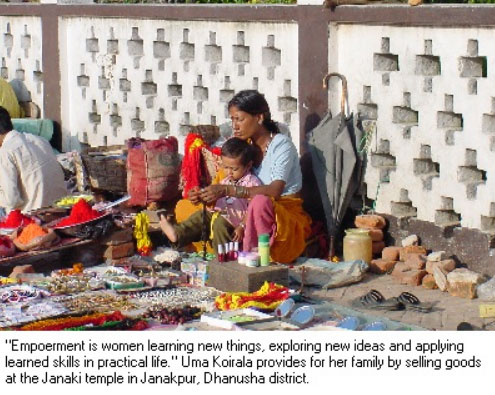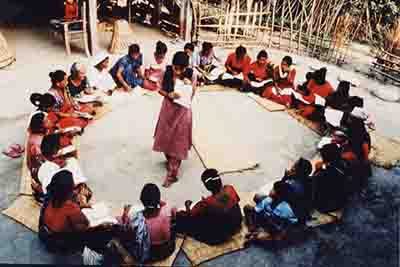approach
Training will be based on the Appreciative Planning and Action model, known as APA or APPA—proven eminently successful across Nepal. APA focuses on success, engages villagers to celebrate what they love about their environment and villages, imageine the future they'd like for thier children and grandchildren, and cretae their own action plans for achieving their desired future. The method also empowers women to create their own savings-led village banks for financing their development ambitions. An important side benefit of this approach is the potential for attracting villagers to join the training teams to carry their lessons learned to the next villages along the Trail.
When communities dream about their future, design a plan to make their dreams come true – and then deliver on their plans – they can change their world. This is Appreciative Participatory Planning and Action(APPA), a streamlined, dynamic adaptation of Appreciative Inquiry (AI)
The APPA process was created in Nepal during the development of the new Makalu Barun National Park, in the shadow of Mt. Everest. APPA uses 3 basic, easily understood questions that were asked of the people in each village in anticipation of ecotourism development:
1.What is working?What are your proudest achievements? What do you love about this village, the natural environment? What do you want your children and grandchildren to know about?
2.What does ‘even better’ look like?
What is your vision of the future of the village for your children?
3.How are you going to get there?
Building on your successes, what is your action plan for achieving your dreams? – Who is going to do what, and when? What can we do right now? (while waiting for the tea to come)
After proving successful in the development of village-based ecotourism, conservation and development across Makalu, the APPA process was then applied in the Terai region in a 5-year women’s empowerment program headed by Marcia Odell: The WORTH literacy- and savings-led micro enterprise program mobilized very poor women—generally earning about $42 a year. Using the APPA process, WORTH helped them develop financial literacy, create their own Village Banks to generate their own loans for starting or expanding small businesses.

In Makalu, the village groups consisted largely of men, and meetings took up most of the day. When women were asked why they didn’t join in, they said, “We have so much work, but we can come if the meetings are only 2 hours. With the meetings shortened, the women became a dominate force for change. And with literacy generally less than 20%, story-telling with pictures became core to the APPA process. At the end of each meeting, while the women prepared tea, the men asked, “What can we do now to get started on our action plans?” And, in just 15-20 minutes, they cleaned up the village, fixed a water tap, improved a few yards of trekking trail, put a thatched roof on a classroom under construction, or built a simple latrine-- a crucial foundation for the development of eco-tourism.

A survey conducted after the first 18 mos. revealed that the 125,000 WORTH women and their 6,000 groups had already started 62,000 micro businesses with no technical support. Asked how they did this with no business training, the women said that they started every meeting by sharing their successes—the core of the APPA process. The handful of women who already had small businesses shared their stories, and micro businesses spread like wildfire. Flamed by education, communication and the synergy of success; women soon quadrupled their income. After 3 years of the 5-year program, Nepal’s Maoist rebellion forced the program to shut down and the organizers had to leave Nepal, leaving the women and their 1,500 Village Banks, each with an average $800 in capital that they had generated through their Village Bank, loaning to each other.

Seven years later, after the rebellion had subsided, a follow-up research project revealed, remarkably, that 62% of the original Village Banks were still functioning, the women had created 400 more on their own, and their original $800 fund was now $3,200. Today, almost 20 years later, the village banking groups have formed federations and co-ops, women are serving in parliament or as village leaders. The magic of WORTH will be leveraged by the Great Himalaya Trail Project: Communities, men, women and youth discover the power that they have, act on it, and change their world.



